






Thursday 6 March, 7.30pm Usher Hall, Edinburgh Friday 7 March, 7.30pm City Halls, Glasgow
TCHAIKOVSKY Violin Concerto
WALEY-COHEN Pocket Cosmos
Interval of 20 minutes
BEETHOVEN Symphony No 4
Mark Wigglesworth Conductor *
Alena Baeva Violin*
Kindly supported by
* Please note there has been a change to the concert as originally advertised. Due to personal reasons, Pekka Kuusisto is sadly no longer able to take part in these performances. We are grateful to Alena Baeva, who joins as soloist in the Tchaikovsky Violin Concerto, and Mark Wigglesworth, who conducts the concert.
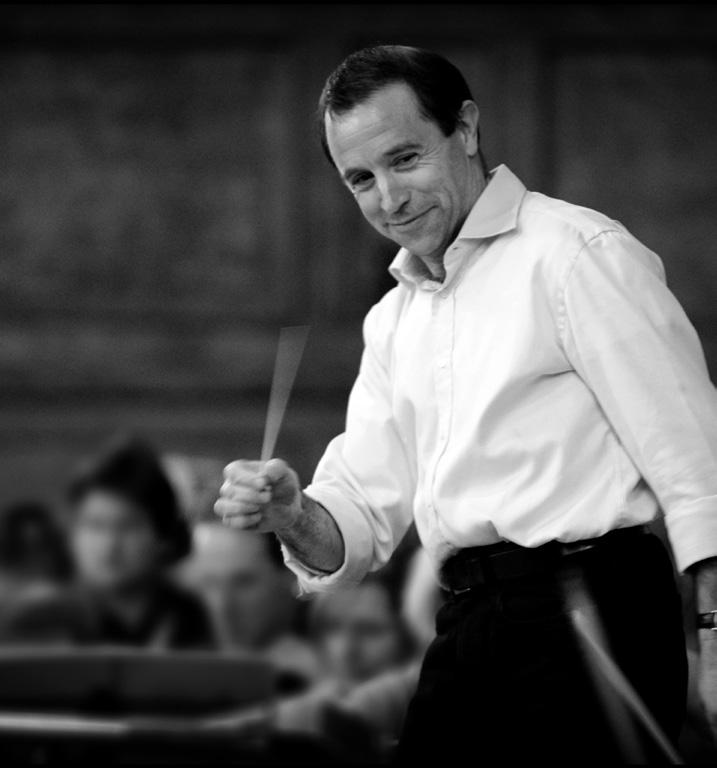
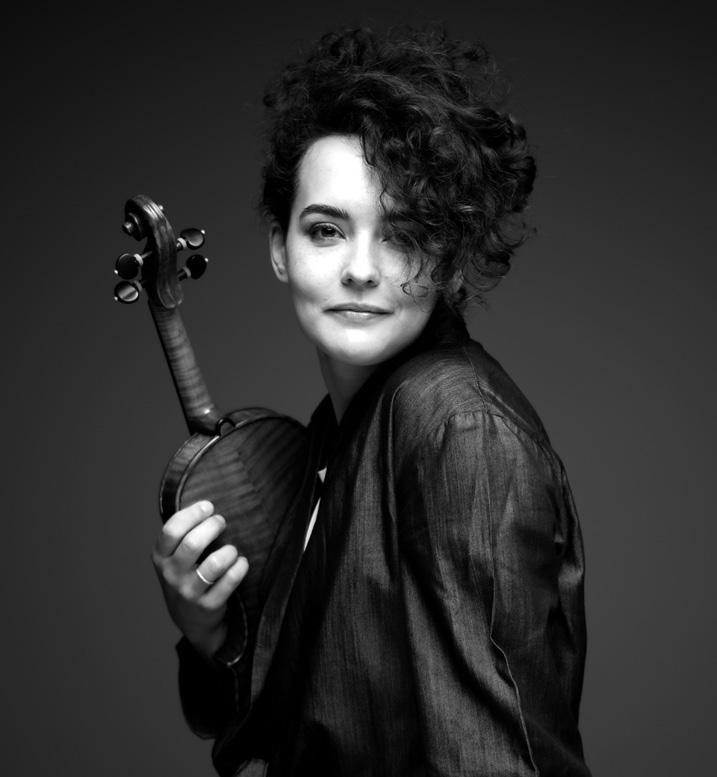
4 Royal Terrace, Edinburgh EH7 5AB +44 (0)131 557 6800 | info@sco.org.uk | sco.org.uk
THANK YOU
Our Principal Conductor’s Circle are a special part of our musical family. Their commitment and generosity benefit us all – musicians, audiences and creative learning participants alike.
Annual Fund
James and Patricia Cook
Visiting Artists Fund
Colin and Sue Buchan
Harry and Carol Nimmo
Anne and Matthew Richards
International Touring Fund
Gavin and Kate Gemmell
Creative Learning Fund
Sabine and Brian Thomson
Conductor Emeritus Joseph Swensen
Donald and Louise MacDonald
Chorus Director Gregory Batsleer
Anne McFarlane
Principal Second Violin
Marcus Barcham Stevens
Jo and Alison Elliot
Second Violin Rachel Smith
J Douglas Home
Principal Viola Max Mandel
Ken Barker and Martha Vail Barker
Viola Brian Schiele
Christine Lessels
Viola Steve King
Sir Ewan and Lady Brown
Principal Cello Philip Higham
The Thomas Family
Sub-Principal Cello Su-a Lee
Ronald and Stella Bowie
American Development Fund
Erik Lars Hansen and Vanessa C L Chang
Productions Fund
Anne, Tom and Natalie Usher
Bill and Celia Carman
Anny and Bobby White
Scottish Touring Fund
Eriadne and George Mackintosh
Claire and Anthony Tait
Cello Donald Gillan
Professor Sue Lightman
Cello Eric de Wit
Jasmine Macquaker Charitable Fund
Principal Double Bass
Caroline Hahn and Richard Neville-Towle
Principal Flute André Cebrián
Claire and Mark Urquhart
Principal Oboe Robin Williams
The Hedley Gordon Wright Charitable Trust
Principal Clarinet Maximiliano Martín
Stuart and Alison Paul
Principal Bassoon Cerys Ambrose-Evans
Claire and Anthony Tait
Principal Timpani Louise Lewis Goodwin
Geoff and Mary Ball


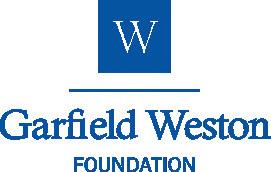
Diamond
The Cockaigne Fund
Malcolm and Avril Gourlay
John and Jane Griffiths
James and Felicity Ivory
Robin and Catherine Parbrook
Tom and Natalie Usher
Platinum
E.C. Benton
Michael and Simone Bird
Silvia and Andew Brown
David Caldwell in memory of Ann
Dr Peter Williamson and Ms Margaret Duffy
Judith and David Halkerston
Audrey Hopkins
David and Elizabeth Hudson
Helen B Jackson
Dr and Mrs Peter Jackson
Dr Daniel Lamont
Chris and Gill Masters
Duncan and Una McGhie
Anne-Marie McQueen
James F Muirhead
Patrick and Susan Prenter
Mr and Mrs J Reid
George Ritchie
Martin and Mairi Ritchie
Hilary E Ross
Elaine Ross
George Rubienski
Jill and Brian Sandford
Michael and Elizabeth Sudlow
Robert and Elizabeth Turcan
Alan and Sue Warner
Finlay and Lynn Williamson
Ruth Woodburn
William Zachs
Gold
Peter Armit
Adam Gaines and Joanna Baker
John and Maggie Bolton
Elizabeth Brittin
James Wastle and Glenn Craig
Jo and Christine Danbolt
James and Caroline Denison-Pender
Andrew and Kirsty Desson
David and Sheila Ferrier
Chris and Claire Fletcher
Dr J W E Forrester
James Friend
Iain Gow
Margaret Green
Christopher and Kathleen Haddow
Catherine Johnstone
Gordon Kirk
Janey and Barrie Lambie
Mike and Karen Mair
Roy and Svend McEwan-Brown
John and Liz Murphy
Tom Pate
Sarah and Spiro Phanos
Maggie Peatfield
Charles Platt
Alison and Stephen Rawles
Andrew Robinson
Olivia Robinson
Anne McAlister and Philip Sawyer
Irene Smith
Dr Jonathan Smithers
Ian S Swanson
Ian and Janet Szymanski
John-Paul and Joanna Temperley
Bill Welsh
Robert Mackay and Philip Whitley
Catherine Wilson
Neil and Philippa Woodcock
G M Wright
Silver
Roy Alexander
Fiona and Neil Ballantyne
The Batsleer Family
Jack Bogle
Jane Borland
Dinah Bourne
Michael and Jane Boyle
Mary Brady
John Brownlie
Laura Buist
Robert Burns
Kate Calder
Sheila Colvin
Lorn and Camilla Cowie
Lord and Lady Cullen of Whitekirk
Adam and Lesley Cumming
Dr Wilma Dickson
Sylvia Dow
Raymond Ellis
Dr and Mrs Alan Falconer
Sheila Ferguson
Malcolm Fleming
Dr William Irvine Fortescue
Dr David Grant
Anne Grindley
Andrew Hadden
J Martin Haldane
Ronnie and Ann Hanna
Roderick Hart
Norman Hazelton
Ron and Evelynne Hill
Philip Holman
Clephane Hume
Tim and Anna Ingold
David and Pamela Jenkins
Margaret Mortimer and Ken Jobling
Julie and Julian Keanie
Professor Christopher and Mrs Alison Kelnar
Dr and Mrs Ian Laing
Graham and Elma Leisk
Geoff Lewis
Christopher and Molly Ludlam
Dorothy A Lunt
Vincent Macaulay
James McClure in memory of Robert Duncan
Barry McCorkell
Lucy McCorkell
Gavin McCrone
Brian Miller
Alistair Montgomerie
Andrew Murchison
Pamela Andrews and Alan Norton
Gilly Ogilvy-Wedderburn
David and Tanya Parker
John Peutherer in memory of Audrey Peutherer
James S Potter
Timothy Barnes and Janet Sidaway
Catherine Steel
Takashi and Mikako Taji
Douglas and Sandra Tweddle
C S Weir
Susannah Johnston and Jamie Weir
We are indebted to everyone acknowledged here who gives philanthropic gifts to the SCO of £300 or greater each year, as well as those who prefer to remain anonymous.
We are also incredibly thankful to the many individuals not listed who are kind enough to support the Orchestra financially on a regular or ad hoc basis. Every single donation makes a difference.
Become a regular donor, from as little as £5 a month, by contacting Hannah Wilkinson on 0131 478 8364 or hannah.wilkinson@sco.org.uk.
“A crack musical team at the top of its game.”

HM The King
Patron
Donald MacDonald CBE
Life President
Joanna Baker CBE
Chair
Gavin Reid LVO
Chief Executive
Maxim Emelyanychev
Principal Conductor
Andrew Manze
Principal Guest Conductor
Joseph Swensen
Conductor Emeritus
Gregory Batsleer
Chorus Director
Jay Capperauld
Associate Composer
Information correct at the time of going to print
First Violin
Sophia Prodanova
Afonso Fesch
Alice Evans
Aisling O’Dea
Fiona Alexander
Amira Bedrush-McDonald
Sarah Bevan Baker
Tom Hankey
Second Violin
Marcus Barcham Stevens
Gordon Bragg
Magdalena Loth-Hill
Michelle Dierx
Niamh Lyons
Rachel Smith
Catherine James
Kristin Deeken
Viola
Max Mandel
Francesca Gilbert
Brian Schiele
Steve King
Rebecca Wexler
Kathryn Jourdan
Cello
Philip Higham
Su-a Lee
Donald Gillan
Niamh Molloy
Robert Anderson
Bass
Philip Nelson
Jamie Kenny
Laura Murphie
Flute
André Cebrián
Carolina Patricio
Piccolo
Carolina Patricio
Oboe
Katherine Bryer
Fraser Kelman
Clarinet
Maximiliano Martín
William Stafford
Bassoon
Cerys Ambrose-Evans
Alison Green
Su-a Lee
Sub-Principal Cello
Horn
Ken Henderson
Martin Lawrence
Gavin Edwards
Rachel Brady
Trumpet
Peter Franks
Shaun Harrold
Trombone
Duncan Wilson
Nigel Cox
Timpani
Louise Lewis Goodwin
Percussion
Kate Openshaw
Louise Lewis Goodwin
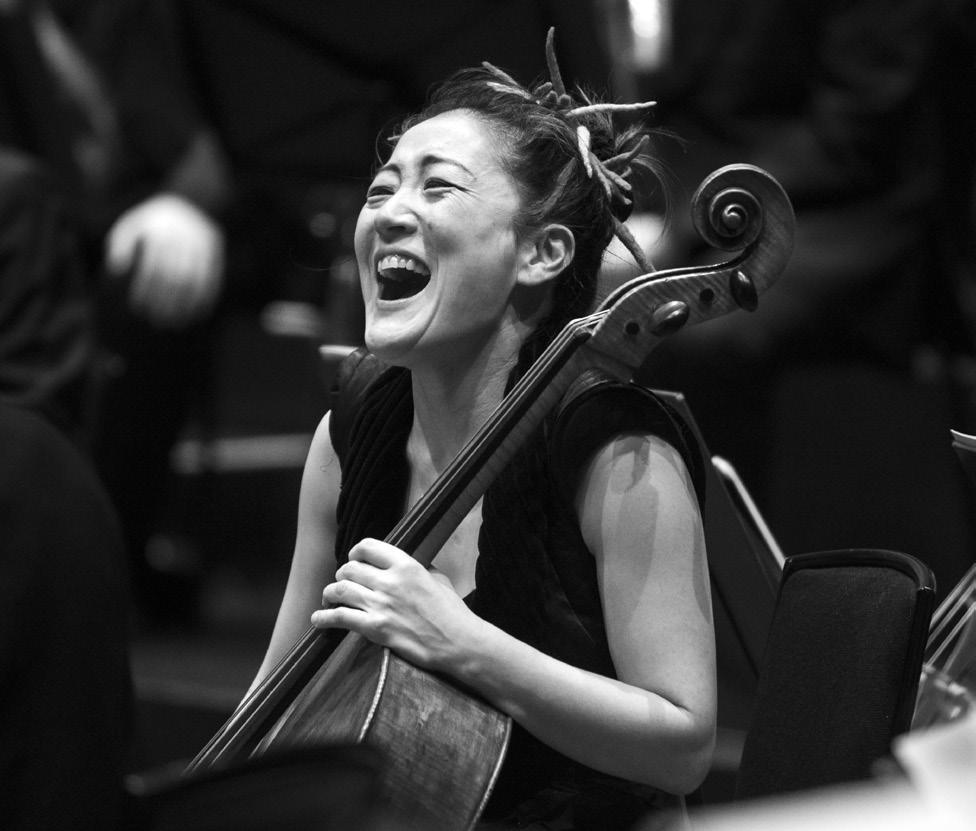
TCHAIKOVSKY (1840-1893)
Violin Concerto in D Major, Op 35 (1878)
Allegro moderato
Canzonetta: Andante
Finale: Allegro vivacissimo
WALEY-COHEN (b.1989)
Pocket Cosmos (2022)
BEETHOVEN (1770-1827)
Symphony No 4 in B-flat Major, Op 60 (1806)
Adagio – Allegro vivace
Adagio
Allegro vivace
Allegro ma non troppo
A concerto born out of despair and passion, a symphony that dares to be modest and softly spoken, and even a deeply personal contemplation of the universe: there’s no lack of variety or ambition among the three pieces, in contrasting styles and with contrasting themes, in tonight’s concert.
We begin, though, with a doomed union. On 18 July 1877, Pyotr Ilyich Tchaikovsky embarked on an ill-fated marriage to Antonina Milyukova. His aim, almost certainly, was actively to repress his homosexuality once and for all, or at least conceal it under a thick cloak of matrimonial propriety. Tchaikovsky and Milyukova’s marriage lasted less than three months: though they never officially divorced, they nonetheless returned to their entirely separate lives. (Milyukova would go on to suffer from increasing mental and emotional instability, and as a result spent the final two decades of her life in a Moscow psychiatric institution.) Deeply depressed himself, Tchaikovsky fled to the Swiss resort of Clarens in November 1877, in the hope of recovery. There, he was joined by his former composition student Iosef Kotek, also a violinist. As a result of Kotek’s presence, Tchaikovsky produced one of his tenderest, most lyrical creations: his only Violin Concerto.
But let’s rewind a few years. Tchaikovsky and Kotek had first met when the younger man enrolled at the Moscow Conservatoire in 1871, and Tchaikovsky quickly developed a strong attraction to his student, one that only increased over time. In January 1877, Tchaikovsky wrote to his brother Modest: ‘I have known him for six years already. I always liked him, and on several occasions I have felt a little bit in love with him. I cannot say that my love is completely pure. When he caresses me with his hand, when he lies with his head on my chest and I play with his hair and secretly kiss it… passion rages within me with unimaginable force.’
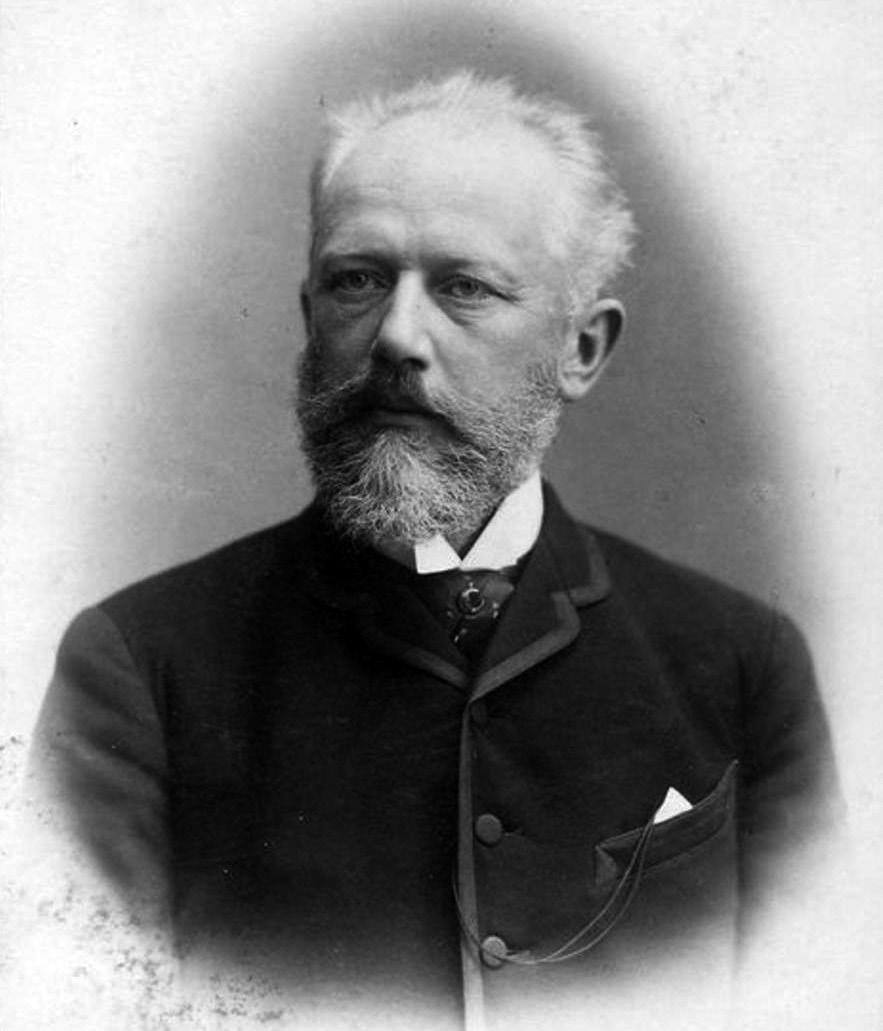
Listening to the Concerto’s gentle, heartfelt music more than a century later, it’s hard to discern just what Hanslick objected to so strongly (unless it had more to do with the work’s genesis than its music).
Kotek was one of the few people who knew just how unhappy Tchaikovsky had been in his brief marriage, and his visit to Clarens was almost certainly as more than simply a supportive friend. Nonetheless, his presence helped Tchaikovsky professionally as well as personally: not being a violinist himself, the composer worked closely with Kotek on much of his new Concerto’s solo writing. Would it be going too far to describe the Concerto as a musical love letter from Tchaikovsky to his protégé? That’s probably an overly simplistic interpretation, though this musical collaboration clearly held a special place in Tchaikovsky’s heart. When he discarded the Concerto’s original slow movement in favour of entirely new material, he transformed those earlier sketches into the first movement in what he later called Souvenir d’un lieu cher (‘Memory of a cherished place’).
Things quickly turned sour, however. Concerned by what wagging Russian tongues might
speculate about his Swiss excursion with a younger man, Tchaikovsky dedicated the Concerto not to Kotek but to the renowned violinist Leopold Auer, then concertmaster of St Petersburg’s Imperial Orchestra. Kotek was clearly wounded: three years later, he refused to perform the Concerto, claiming it wasn’t much good and might even damage his career prospects.
It got worse. Though Auer was initially enthusiastic about the piece, he later pulled out of a premiere performance planned for March 1879, claiming that the Concerto was unplayable in its original version. The piece finally received its premiere in Vienna in December 1881, with Adolf Brodsky (to whom Tchaikovsky had re-dedicated the work) as soloist. And it drew a famously venomous review from the influential Viennese critic Eduard Hanslick, who concluded: ‘Tchaikovsky’s Violin Concerto for the first time confronts us with the
hideous idea that there may be compositions whose stink one can hear.’
Listening to the Concerto’s gentle, heartfelt music more than a century later, it’s hard to discern just what Hanslick objected to so strongly (unless it had more to do with the work’s genesis than its music). After a softly spoken introduction from the orchestral violins (savour it, for it never returns), the soloist ushers in the first movement’s tender main melody, later moving via some fearsome fiddle fireworks to a similarly gentle second main theme. Following a sombre, hymn-like opening for woodwind choir alone, the second movement is a poignant and very Russian song for the violin soloist, and it leads without a break into the dashing finale, with all the strutting confidence of a Cossack dance.
Despite their falling out over the Concerto’s dedication and his own increasing frustration at the younger man’s apparently ceaseless womanising, Tchaikovsky nonetheless retained a certain affection for Kotek. He last saw him in 1884, again in Switzerland, where Kotek was attempting to gain some respite from tuberculosis at a Davos sanatorium. Tchaikovsky visited to bid him farewell, and Kotek died the following year, aged just 29. In a diary entry from more than a year later, Tchaikovsky returned to the passionate correspondence they’d exchanged, noting simply: ‘Kotek’s letters. Tears.’
From the tenderness and joyful exuberance of Tchaikovsky’s Concerto, we jump to almost the present day for tonight’s next piece. London-based composer Freya Waley-Cohen has composed works for many international ensembles – from the Los Angeles Philharmonic to the City of Birmingham Symphony Orchestra, the King’s Singers to the Manchester Collective – and her evocative music collides
sometimes rugged rhythmic grittiness with more ethereal, luminous writing. Her Pocket Cosmos, which we’ll hear next, was premiered in 2022. Waley-Cohen herself writes about the piece:
"When I started writing Pocket Cosmos, I had a line from Rebecca Tamás' spell for reality rolling around in my head like an earworm: ‘the entire pocket cosmos shifting and flapping’. It’s a poem that uses ideas of earthly rhythms to explore mystical experience. Around the same time, a close friend gave me a stick of palo santo, a scented wood from South America that is used for ceremonies around moving into a new home, which I was doing at the time. I kept the palo santo on my desk while I was writing Pocket Cosmos, and found the scent helped to evoke the sound world I was creating in this piece.
It brought to mind another poem, which, in a very different way, explores ties between the spirit and earthly rhythms: Ursula K Le Guin’s Come to Dust, which begins:
Spirit, rehearse the journeys of the body that are to come, the motions of the matter that held you.
Rise up in the smoke of palo santo Fall to the earth in the falling rain.
Later in the writing process I came across another Le Guin quote which felt very connected to this piece. She said: ‘I guess I’m trying to subjectify the universe, because look where objectifying it has gotten us.’ At the point where I came across this quote, I’d been holding this image of the pocket cosmos, all its shifting perspectives and orbits, in my mind as I wrote. Pocket Cosmos is a piece that starts off in the objectivity of this image and hurtles towards the subjective".
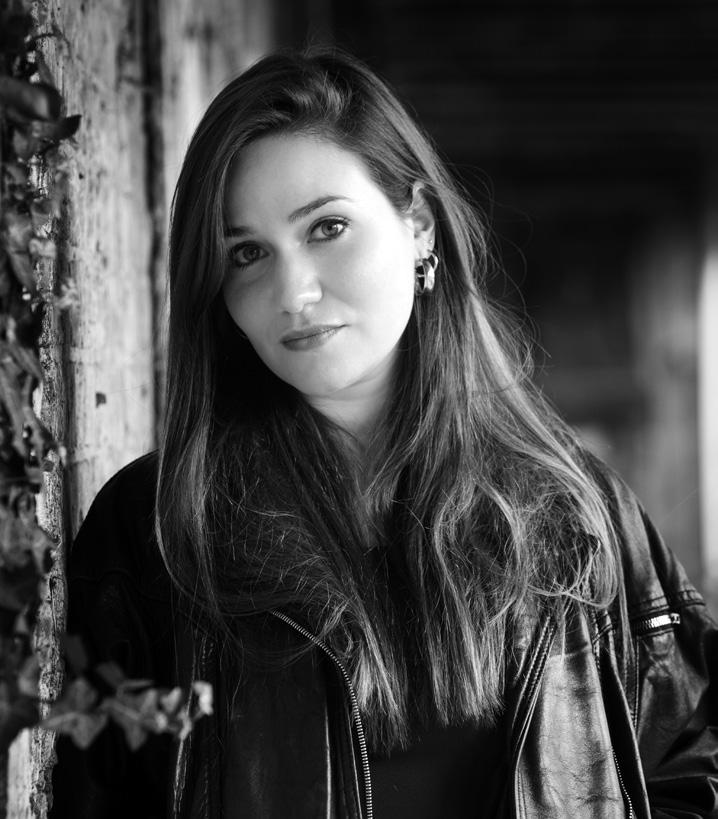
Waley-Cohen's evocative music collides sometimes rugged rhythmic grittiness with more ethereal, luminous writing.
Tonight’s concert concludes with what probably counts as Beethoven’s most neglected symphony. Admittedly, it might sound strange to call any Beethoven symphony neglected. There’s no denying, however, that his Fourth Symphony is probably his least well known, probably for the simple reason that it sits between his grander and more exuberant Third ('Eroica') and Fifth. No less a figure than Robert Schumann famously described the Fourth as ‘a slender Greek maiden between two Norse giants’. But despite its sunny disposition and its Haydnesque proportions, might we be wrong to consider it as a musical throwback between two pioneering, heroic masterpieces?
A lot of the Fourth Symphony’s lighthearted mood and modest proportions may come down to the circumstances of its commission. Beethoven spent the summer of 1806 away from the bustle of Vienna, at the Silesian country estate of his friend and patron Prince Karl Lichnowsky. The Prince
invited the composer to visit a nearby friend – and, it turned out, enormous Beethoven fan – Count Franz von Oppersdorff in Oberglogau (now Głogówek in Poland). So passionate about music was the Count that he not only kept his own private orchestra, but also insisted that everyone in his household learnt an instrument. And he demonstrated his admiration for the visiting composer by asking him to write a new symphony for his private band, in return for a generous fee.
Given the flattery and the substantial sum involved, Beethoven was hardly likely to decline. He’d already started work on what would become his Fifth Symphony, but sensed that it wouldn’t suit Oppersdorff’s petite, Haydn-loving orchestra. Instead, he offered an entirely different piece, the Fourth Symphony – perhaps written expressly with Oppersdorff’s players in mind, though there’s substantial evidence to suggest that Beethoven
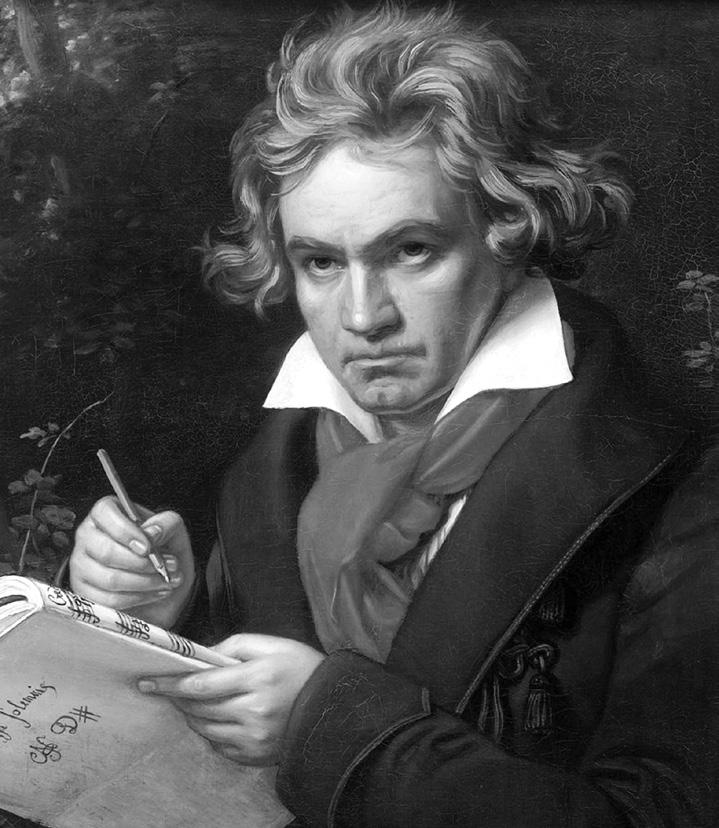
To modern ears, the Fourth might sound far more Haydnesque than the 'Eroica' or Fifth Symphony that stand either side of it. But that’s to disregard Beethoven’s continuing innovations, in terms of the Symphony’s power, its tautness, and its ruthlessly rigorous structures.
had already composed the work, and it was simply good luck that it chimed with the Count’s expectations.
Despite Beethoven giving Oppersdorff exclusive performance rights for six months, the Count graciously allowed the private premiere to take place in Vienna, at the city mansion of Prince Lobkowitz, another of the composer’s patrons, in March 1807. The public first heard the Fourth Symphony in April 1808 at Vienna’s Burgtheater, though it wasn’t much of a success, despite its relatively listener-friendly, conservative tone. Even fellow composer Carl Maria von Weber found it far too radical and outlandish for his personal tastes, writing sarcastically that Beethoven, ‘above all things, throws rules to the winds, for they only hamper a genius’.
To modern ears, the Fourth might sound far more Haydnesque than the 'Eroica' or Fifth Symphony that stand either side of it. But that’s
to disregard Beethoven’s continuing innovations, in terms of the Symphony’s power, its tautness, and its ruthlessly rigorous structures. The first movement’s slow, brooding introduction manages to avoid the Symphony’s ‘home’ key of B flat for all of 42 bars, and when its main faster section bursts into life, it represents a wholesale change of mood. The slower second movement pulls a characteristically Beethovenian trick of contrasting a long, slowly unfolding melody against an accompaniment of almost militarystyle precision. The third movement flickers constantly between light and darkness, with prominent woodwind writing in its central trio section. Beethoven closes with a dose of infectious jollity in his dashing finale – though spare a thought for the orchestra’s Principal Bassoon, thrust unexpectedly into the spotlight alone towards the end of the movement, when its opening material returns.
© David Kettle
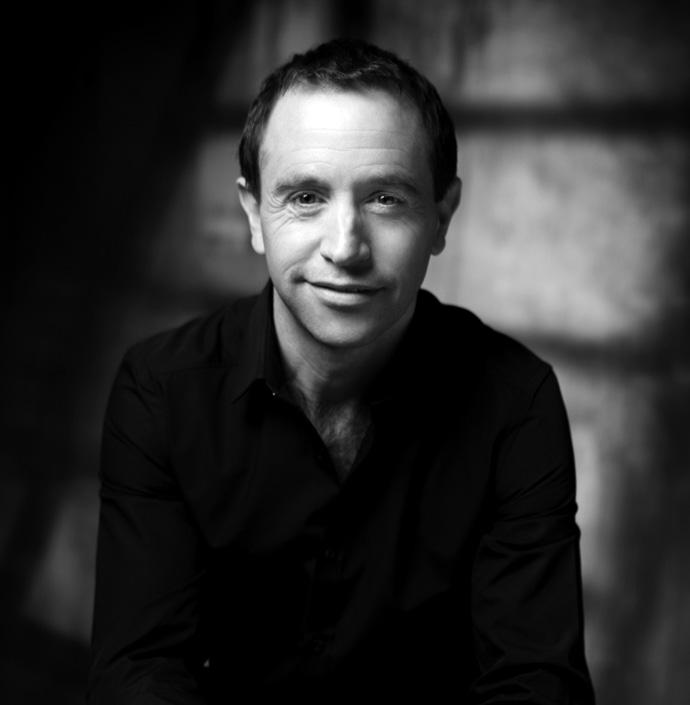
Mark Wigglesworth is recognised internationally for his masterly interpretations both in the opera house and in the concert hall, highly detailed performances that combine a finely considered architectural structure with great sophistication and rare beauty. As a highly respected conductor he has forged many enduring relationships with orchestras and opera companies across the world, conducting repertoire ranging from Mozart to Boulez.
Highlights have included performances with the Berlin Philharmonic, Royal Concertgebouw, London Symphony, Boston Symphony, New York Philharmonic, Philadelphia Orchestra, Chicago Symphony, Los Angeles Philharmonic, Cleveland Orchestra, and Tokyo Symphony. Recordings include a critically acclaimed cycle of the Shostakovich Symphonies with the BBC National Orchestra of Wales and the Netherlands Radio Philharmonic, Mahler’s Sixth and Tenth Symphonies with the Melbourne Symphony, a disc of English music with the Sydney Symphony, Britten’s Peter Grimes with Glyndebourne, and the Brahms Piano Concertos with Stephen Hough.
In opera, Wigglesworth has enjoyed long relationships with The Royal Opera House, Covent Garden (Die Meistersinger von Nürnberg, Rise and Fall of Mahagonny, From the House of the Dead, La Clemenza di Tito, Hansel and Gretel) and English National Opera (Lady Macbeth of Mtsensk, Cosi fan Tutti, Falstaff, Katya Kabanova, Parsifal, Force of Destiny, Magic Flute, Jenufa, Don Giovanni, Lulu) and operatic engagements elsewhere include The Metropolitan Opera, New York (The Marriage of Figaro, Orfeo) as well as at The Bavarian State Opera, Opéra National de Paris, and the Teatro Real, Madrid. In 2017 he received the Olivier Award for Outstanding Achievement in Opera.
He has written articles for The Guardian and The Independent, and made a six-part TV series for the BBC entitled Everything to Play For. His book The Silent Musician: Why Conducting Matters is published by Faber & Faber and has been translated into Spanish and Chinese. He has held positions as Associate Conductor of the BBC Symphony, Principal Guest Conductor of the Swedish Radio Symphony, Music Director of the BBC National Orchestra of Wales and English National Opera and in September 2024 became Chief Conductor of the Bournemouth Symphony Orchestra. In 2025 he takes up the role of Chief Conductor with the Adelaide Symphony Orchestra.
For full biography please visit sco.org.uk
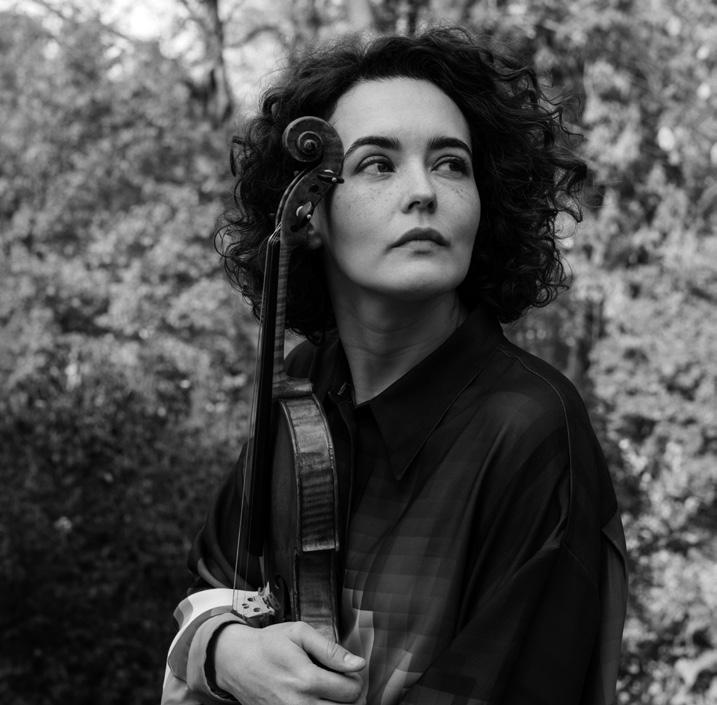
Described as “a magnetic presence” and “a constantly fascinating sound technician” (New York Classical Review), violinist Alena Baeva is considered one of the most exciting, versatile, and captivating soloists active on the world stage today, working with leading conductors including Gustavo Gimeno, Paavo Järvi, Marek Janowski, Vladimir Jurowski, Tomáš Netopil and Riccardo Minasi.
Possessing a passionate musical curiosity, Baeva holds an already vast and rapidly expanding active repertoire, including over fifty violin concerti. She is a champion of lesser-known works alongside the more mainstream violin literature, with recent performances promoting such composers as Bacewicz, Karaev, Karłowicz, and Silvestrov.
Baeva’s career as an international soloist of the highest renown has grown at an extraordinary pace over recent seasons, performing with orchestras including New York Philharmonic Orchestra, Hong Kong Philharmonic Orchestra, NHK Symphony Orchestra, Tonhalle-Orchester Zürich, London Philharmonic Orchestra, Die Deutsche Kammerphilharmonie Bremen, Gürzenich-Orchester Köln and Göteborgs Symfoniker. She enjoys a long-standing and rewarding relationship with the Orchestra of the XVIII Century, performing and recording a variety of repertoire on period instruments.
Chamber music holds a particularly special place in her musical life, where she enjoys collaborations with such esteemed artists as Yuri Bashmet, Daishin Kashimoto, Misha Maisky, Jean-Guihen Queyras, and the Belcea Quartet. Her regular sonata partner is the celebrated Ukrainian pianist Vadym Kholodenko, with whom she has a dedicated musical partnership of more than a decade.
Alena Baeva plays on the “ex-William Kroll” Guarneri del Gesù of 1738 – on generous loan from an anonymous patron, with the kind assistance of J&A Beares.
For full biography please visit sco.org.uk
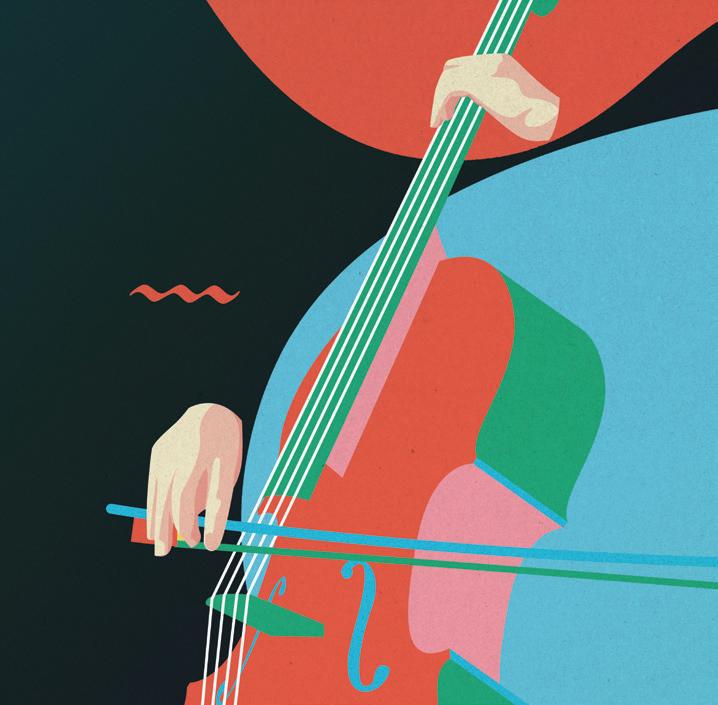
The Scottish Chamber Orchestra (SCO) is one of Scotland’s five National Performing Companies and has been a galvanizing force in Scotland’s music scene since its inception in 1974. The SCO believes that access to world-class music is not a luxury but something that everyone should have the opportunity to participate in, helping individuals and communities everywhere to thrive. Funded by the Scottish Government, City of Edinburgh Council and a community of philanthropic supporters, the SCO has an international reputation for exceptional, idiomatic performances: from mainstream classical music to newly commissioned works, each year its wide-ranging programme of work is presented across the length and breadth of Scotland, overseas and increasingly online.
Equally at home on and off the concert stage, each one of the SCO’s highly talented and creative musicians and staff is passionate about transforming and enhancing lives through the power of music. The SCO’s Creative Learning programme engages people of all ages and backgrounds with a diverse range of projects, concerts, participatory workshops and resources. The SCO’s current five-year Residency in Edinburgh’s Craigmillar builds on the area’s extraordinary history of Community Arts, connecting the local community with a national cultural resource.
An exciting new chapter for the SCO began in September 2019 with the arrival of dynamic young conductor Maxim Emelyanychev as the Orchestra’s Principal Conductor. His tenure has recently been extended until 2028. The SCO and Emelyanychev released their first album together (Linn Records) in November 2019 to widespread critical acclaim. Their second recording together, of Mendelssohn symphonies, was released in November 2023. Their latest recording, of Schubert Symphonies Nos 5 and 8, was released on 1 November.
The SCO also has long-standing associations with many eminent guest conductors and directors including Principal Guest Conductor Andrew Manze, Pekka Kuusisto, François Leleux, Nicola Benedetti, Isabelle van Keulen, Anthony Marwood, Richard Egarr, Mark Wigglesworth, Lorenza Borrani and Conductor Emeritus Joseph Swensen.
The Orchestra’s current Associate Composer is Jay Capperauld. The SCO enjoys close relationships with numerous leading composers and has commissioned around 200 new works, including pieces by Sir James MacMillan, Anna Clyne, Sally Beamish, Martin Suckling, Einojuhani Rautavaara, Karin Rehnqvist, Mark-Anthony Turnage, Nico Muhly and the late Peter Maxwell Davies.
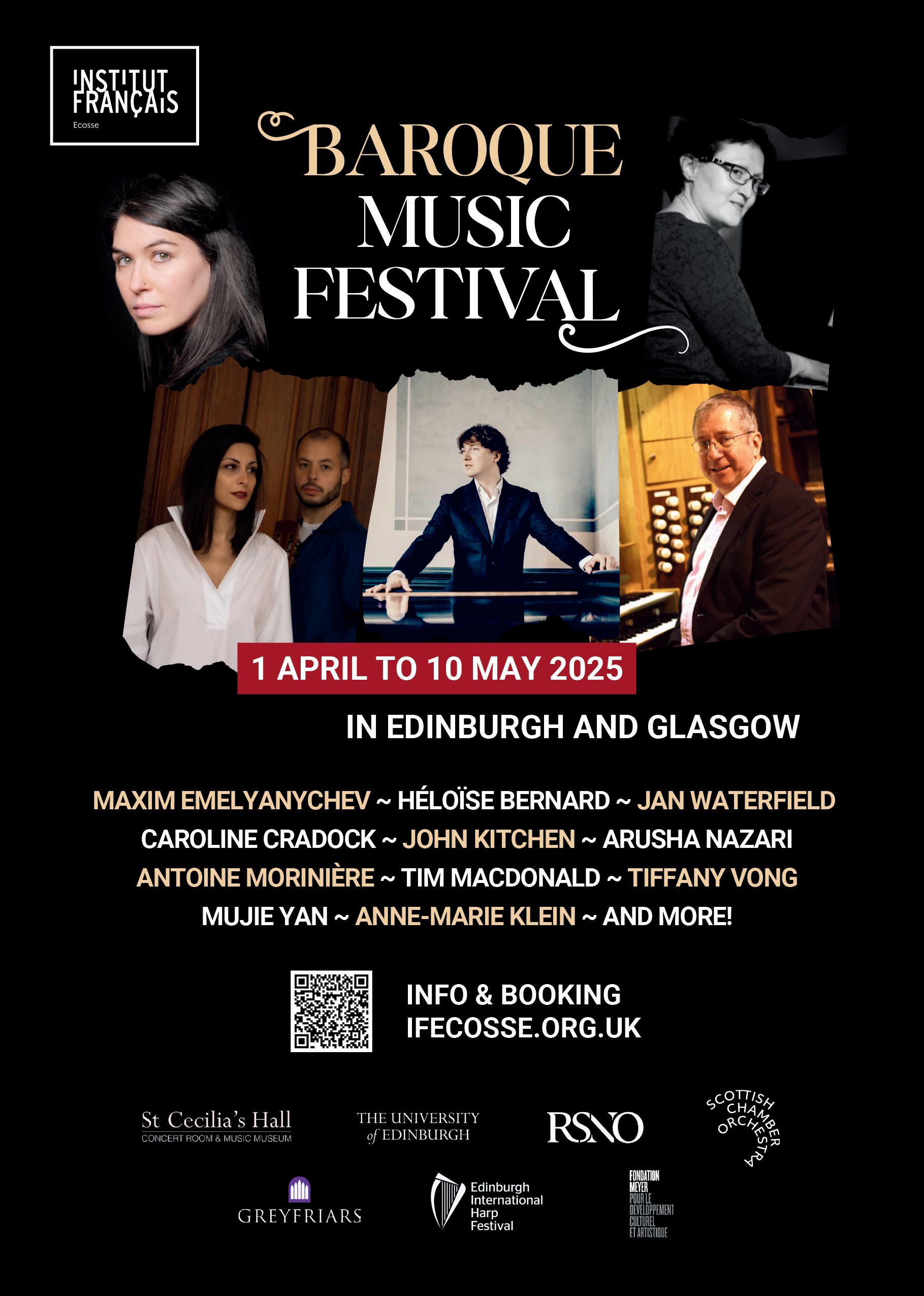
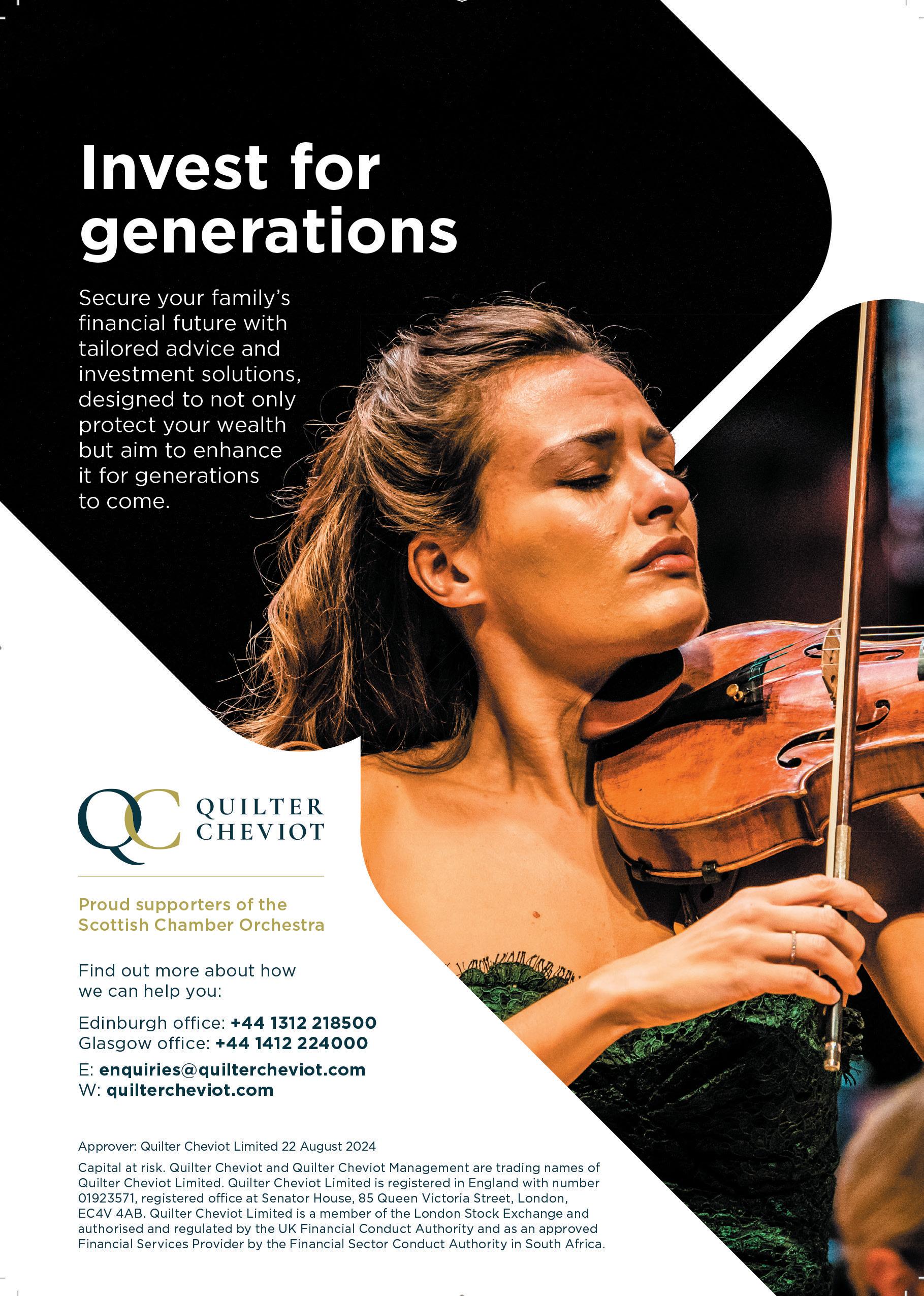


At the SCO, we deeply value our incredible community of regular donors.
Each year, we must raise £1.2 million to continue delivering outstanding musical performances on-stage and innovative education and community work off-stage. Every donation has a positive impact on our work, and, in return, we bring our donors closer to the Orchestra and our wonderful array of visiting artists.
For more information on how you can become a regular donor, please get in touch with Hannah on 0131 478 8364 or hannah.wilkinson@sco.org.uk
sco.org.uk/support-us